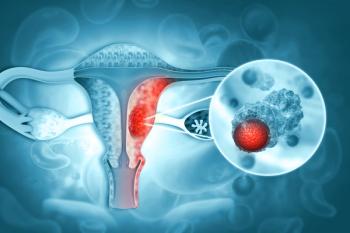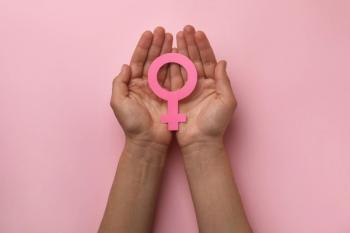
Cold Water Swimming Can Ease Menstrual and Perimenopausal Symptoms
Swimming in cold water can help ease menstrual and perimenopausal symptoms like anxiety and mood swings, according to a recent study published in Sage Journals.
Swimming in cold water can help ease menstrual and perimenopausal symptoms like anxiety and mood swings, according to a recent study published in the journal
Women experience menstruation, or having a period, from puberty to menopause, and can have different experiences. For some, their quality of life (QoL) and wellbeing are significantly affected.
Outside of bleeding, menstruation symptoms include premenstrual syndrome (PMS), cramping, breast tenderness, mood changes, anxiety, depression, fatigue, bloating, headaches, food cravings, digestive cramps and acne and skin changes. Many of these changes are caused by the cycling of the sex hormones, estrogen and progesterone.
When a woman comes to the end of her reproductive life, her periods will stop and she will enter the menopause phase.
Menopause occurs 12 months after the last and final menstrual period. Perimenopause is the period before the official cessation of menstruation where fluctuating levels of estrogen and progesterone may cause women to experience perimenopausal symptoms.
These symptoms include mood changes, changes in sexual desire, trouble concentrating, headaches, night sweats, hot flashes, vaginal dryness, trouble with sleep, joint and muscle aches, heavy sweating, having to pee often and PMS-like symptoms, according to Johns Hopkins Medicine.
The menopause transition lasts on average 4 years with many women experiencing symptoms that significantly affect their QoL.
It’s recommended to women throughout their reproductive years to balance their lifestyle with a healthy diet, exercise and good sleep. Following these practices may also help relieve women’s symptoms.
For example, the activity of swimming alone is known to improve people's physical and mental well-being. However, the physical and mental well-being of women could improve further when swimming in cold water.\
To see how women felt cold-water swimming affected their menstrual and perimenopausal symptoms, researchers conducted a survey of women who regularly cold-water swim.
Cold-water swimming habits include duration of swim, seasonal swimming, use of wetsuits and so on, and have recently been described as significantly impacting their period.
The online survey was advertised for 2 months on social media, asking questions related to cold-water swimming habits and menstrual and perimenopausal symptoms.
The survey gathered responses from over a thousand women. Cold water swimming was reported to notably reduce menstrual symptoms, with anxiety (46.7%), mood swings (37.7%), and irritability (37.6%) showing significant improvement.
Perimenopausal women experienced an improvement in anxiety (46.9%), mood swings (34.5%), low mood (31.1%), and hot flashes (30.3%).
Many symptomatic women (56.4% for periods and 63.3% for perimenopause) specifically swam to alleviate their symptoms.
Women reported the positive impact on their symptoms to both the physical and mental effects of cold water.
Survey results also highlighted the calming and mood-boosting effects of water, the sense of companionship and community, improvements in menstrual symptoms, alleviation of hot flushes, and an overall enhancement in health.
These findings suggest that cold water swimming can serve as a natural method to alleviate menstrual or perimenopausal symptoms, providing an alternative to treatments like over-the-counter acetaminophens, antidepressants, or hormone therapies.
Newsletter
Get the latest industry news, event updates, and more from Managed healthcare Executive.























